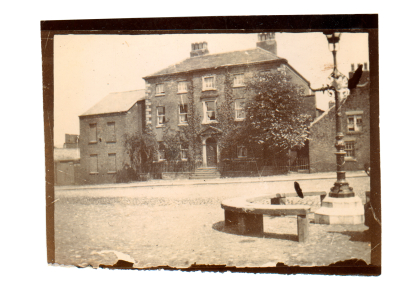There are many reasons why someone might want to research the history of their home. Perhaps they are interested in restoring the structure to its former glory. They also may have found a strange artifact while remodeling and wish to study its origin. Another common reason to research a home is when the residents suspect it is haunted. Researching a home doesn't need a specific reason either, some people do it just because they are curious. To get started with researching the history of your home or property, search for the following.

Different styles of homes were popular at different times in history. For example, Victorian style homes were built primarily during the machine age. By consulting a simple style guide you can determine which yours falls under. Then it will be easier to estimate the age of the home. Of course, an unkempt Victorian home wouldn't still be standing today considering weather damage and natural wear and tear. Sometime, likely several times, since the house's construction it has been re-shingled, the plumbing has been modified, and other mechanical or electrical updates have been made. If the performed maintenance was documented, it is a great place to start your research.
There are a number of historic local documents that can be accessed at your town or city library. The more historical significance a piece of property has, the more documents there will be. Every town should have a historian who can help you locate old materials such as newspapers. These may uncover meaningful events or important people who lived in your home years prior.
One of the best indicators of a building's history is a paper trail of deeds. Every deed documents a property transaction and lists the names of the people involved. There is also usually a description of what is being exchanged with information such as dimensions. You may discover portions of your home were added long after its original design was completed. Deeds are often located in the town courthouse.
Your County Clerk should retain all documents pertaining to your home's mortgage.
Did anyone ever die in your house? A will may not be able to reveal this information, but it could explain an immediate change in ownership. If a homeowner had died and passed on his or her home to their relative there will be record of it. It may also reveal the house's primary use (it may have been a farm). Unfortunately, not everyone files a will so there may be some discrepancy in your home's history.
Most of the above documents will reveal who owned the home at any point in time. In many cases, people do not live alone. Mothers and fathers may have raised families in your home. Consult the census records in your county library to learn the names of everyone who lived in your home and when they resided there. Federal census records have been recorded every ten years since 1790, though the 1890 census was destroyed in a fire.
Maps may not reveal structural changes or shifts in ownership, but they do have other uses. While your house may have been built in the Nineteenth Century, many of the local roads may not have been paved until decades later. The roads on which you drive to work may have once been woods, or even a farm that was considered part of the property. If your house is newer, maps will show what was on the land before it. Your County Clerk may have maps on record. If not, you should check the Real Property Service office.
Deeds and mortgages tell us names, but photographs can put faces to those names. They also might depict your house at an earlier time. The issue with using photographs to research a property is that they are not always captioned, and the names and dates aren't always scribbled on the back. However, with enough digging you may be able to decide who is who and when the photograph was taken. Check your local library for photos.
One invaluable source that not a lot of people know about is microfilm. Archivists cannot possibly hold on to every document they come across. For their own benefit, and for ours, there are many old newspapers, magazines, photos and other resources that have been transferred to small microfilm rolls. Many libraries have microfilm readers and either have reels available to view or can order them for you to read. In addition to microfilm, it may also prove beneficial to look into building permits for your property. They document alterations since the original construction. Finally, don't forget to ask around. Your neighbors and other locals might know a lot. If you learn the names of some residents of long ago, search for their descendants.